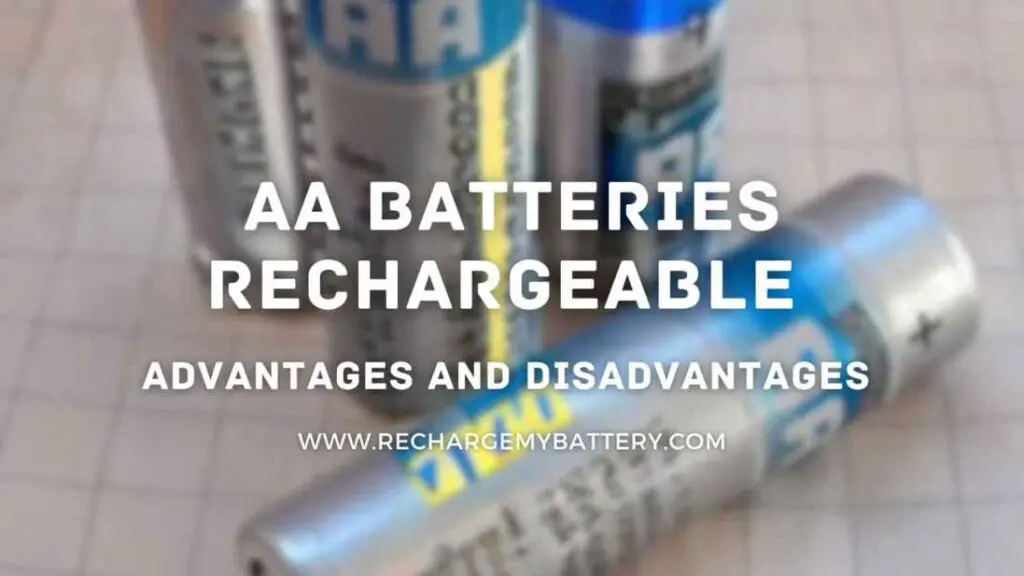When it comes to using different types of batteries, a common question arises: Can you mix rechargeable and non-rechargeable batteries? In this article, we will explore this topic and provide you with the necessary information to make informed decisions about battery usage.
Understanding Rechargeable and Non-Rechargeable Batteries
Before diving into the compatibility of rechargeable and non-rechargeable batteries, it’s essential to understand the basic differences between these two types.
1. Rechargeable Batteries
Rechargeable batteries, also known as secondary batteries, are designed to be reused multiple times. They can be recharged by applying an electrical current to reverse the chemical reactions that occur during discharging. Common examples of rechargeable batteries include lithium-ion (Li-ion), nickel-metal hydride (NiMH), and nickel-cadmium (NiCd) batteries. Rechargeable batteries are generally more expensive upfront but can save money in the long run as they can be recharged and reused multiple times.
2. Non-Rechargeable Batteries
Non-rechargeable batteries, also known as primary batteries, are designed for single-use. Once their energy is depleted, they cannot be recharged and need to be replaced. Alkaline batteries, zinc-carbon batteries, and lithium primary batteries are some examples of non-rechargeable batteries. Non-rechargeable batteries are generally cheaper and readily available, making them suitable for devices with low power consumption or infrequent use.
Compatibility of Rechargeable and Non-Rechargeable Batteries
1. Mixing Different Types of Batteries
In general, it is not recommended to mix rechargeable and non-rechargeable batteries in the same device. Mixing different types of batteries can lead to various issues, including reduced performance, shorter battery life, and potential safety risks. Rechargeable and non-rechargeable batteries have different voltage characteristics and discharge rates, which can cause imbalance and affect the overall performance of the device.
2. Mixing the Same Type of Batteries
While it is generally advisable to use batteries of the same type and brand in a device, there are instances where mixing the same type of batteries may be acceptable. For example, if you have two identical rechargeable batteries, you can typically use them together in a device without significant issues. However, it’s important to ensure that both batteries have similar levels of charge to maintain balance and prevent uneven discharge.
Risks of Mixing Rechargeable and Non-Rechargeable Batteries
Mixing rechargeable and non-rechargeable batteries can pose several risks, both for the device and the batteries themselves. Here are some potential risks associated with this practice:
- Voltage Mismatch: Rechargeable and non-rechargeable batteries have different voltage characteristics. Mixing them can cause a voltage mismatch, potentially leading to erratic behavior or damage to the device.
- Battery Leakage: Different types of batteries may have varying chemical compositions. Mixing them can increase the risk of leakage, which can be corrosive and damage the device.
- Safety Hazards: Rechargeable batteries often have higher energy densities than non-rechargeable batteries. Mixing them can result in increased heat generation or even explosions, posing a significant safety hazard.
- Reduced Battery Life: When rechargeable and non-rechargeable batteries are mixed, the overall battery life can be significantly reduced. This is due to the difference in discharge rates and the inability to recharge the non-rechargeable battery.
Safety Tips for Battery Usage
To ensure the safe and optimal use of batteries, consider the following tips:
- Use Batteries of the Same Type: Whenever possible, use batteries of the same type and brand in a device to maintain compatibility and balance.
- Avoid Mixing Rechargeable and Non-Rechargeable Batteries: It’s best to avoid mixing rechargeable and non-rechargeable batteries to prevent performance issues and safety risks.
- Replace Batteries Together: If you have multiple batteries in a device, replace them all at once to maintain balance and ensure consistent performance.
- Store Batteries Properly: Store batteries in a cool, dry place away from direct sunlight or extreme temperatures to extend their shelf life and prevent leakage.
- Follow Manufacturer Guidelines: Always refer to the manufacturer’s instructions and guidelines for battery usage, charging, and disposal.
Recycling and Disposal of Batteries
Proper disposal of batteries is crucial for environmental sustainability and minimizing potential hazards. Different types of batteries require specific recycling methods. Many communities have battery recycling programs or drop-off locations where you can safely dispose of batteries. Be sure to check local regulations and follow the recommended procedures for battery recycling in your area.
Conclusion
In conclusion, it is generally not recommended to mix rechargeable and non-rechargeable batteries due to the potential risks involved. Mixing different types of batteries can lead to reduced performance, shorter battery life, and safety hazards. It’s important to use batteries of the same type and brand whenever possible to maintain compatibility and balance. Additionally, following safety tips for battery usage and proper recycling and disposal practices can contribute to a more sustainable and safe environment.
FAQs
Q1: Can I use rechargeable batteries in devices designed for non-rechargeable batteries?
It is generally safe to use rechargeable batteries in devices designed for non-rechargeable batteries, as long as they have the same voltage and physical dimensions. However, be cautious of the potential differences in discharge rates and overall performance.
Q2: Can I recharge non-rechargeable batteries?
No, non-rechargeable batteries are not designed to be recharged. Attempting to recharge them can lead to leakage, overheating, or other safety hazards.
Q3: Will mixing rechargeable and non-rechargeable batteries void the device warranty?
Mixing different types of batteries can potentially void the device warranty, as it may be considered improper usage. Always refer to the manufacturer’s guidelines and recommendations.
Q4: Can mixing batteries cause an explosion?
Mixing rechargeable and non-rechargeable batteries can increase the risk of explosions due to voltage mismatches and differences in energy densities. It’s crucial to avoid mixing batteries to prevent safety hazards.
Q5: How can I dispose of old batteries safely?
To dispose of old batteries safely, check local regulations for recycling programs or drop-off locations. Many communities provide specific guidelines for battery recycling to protect the environment.

